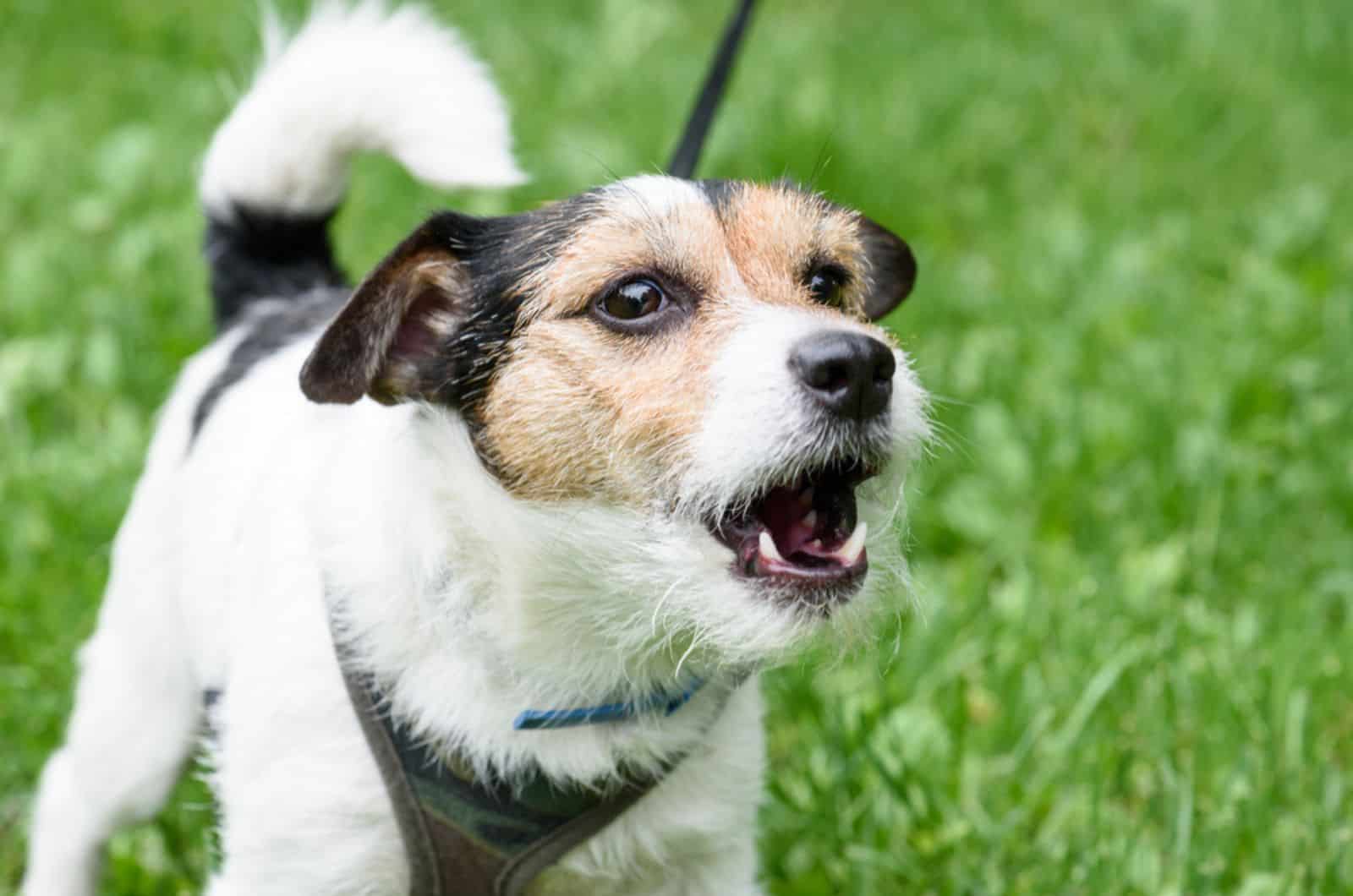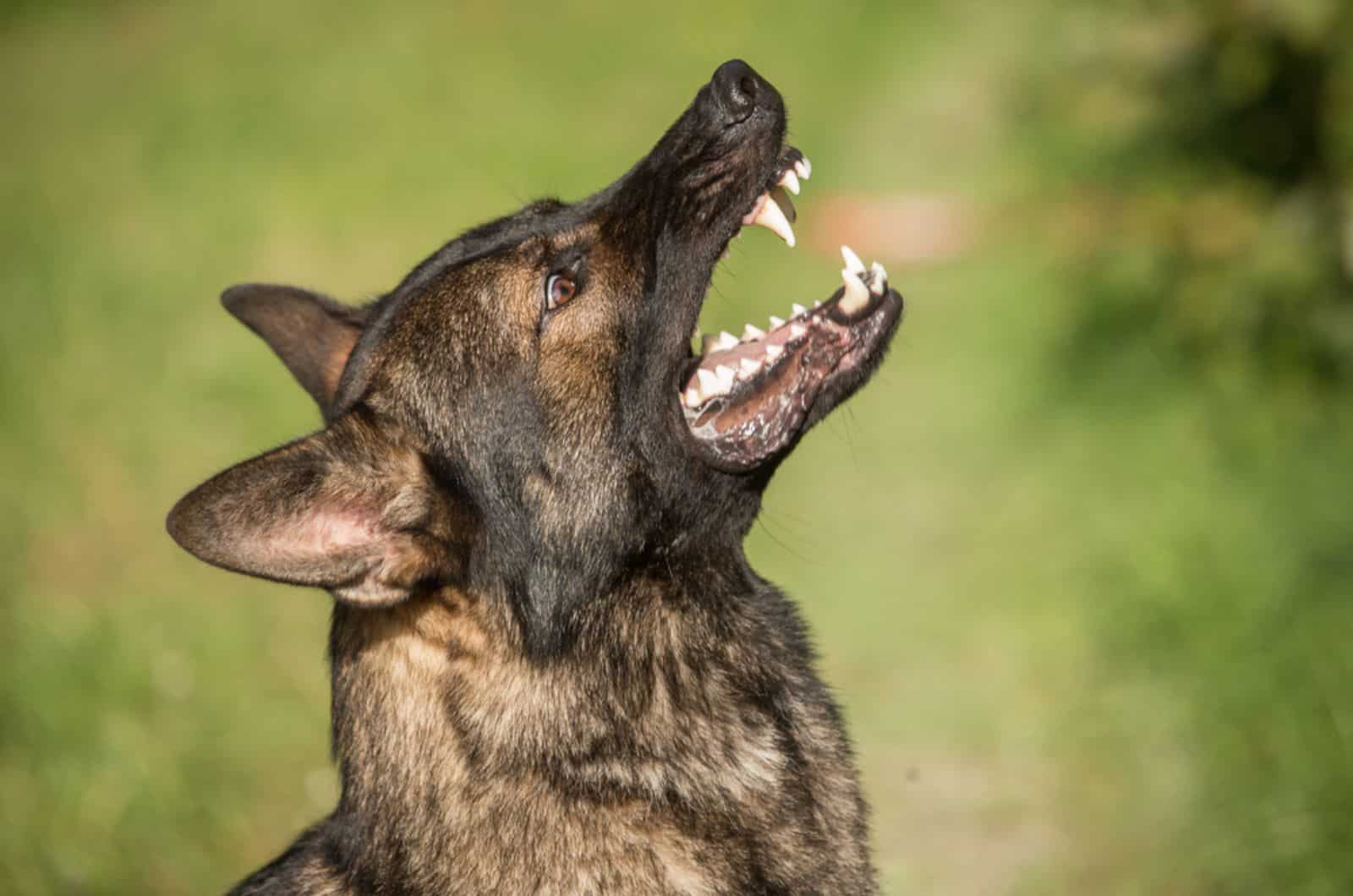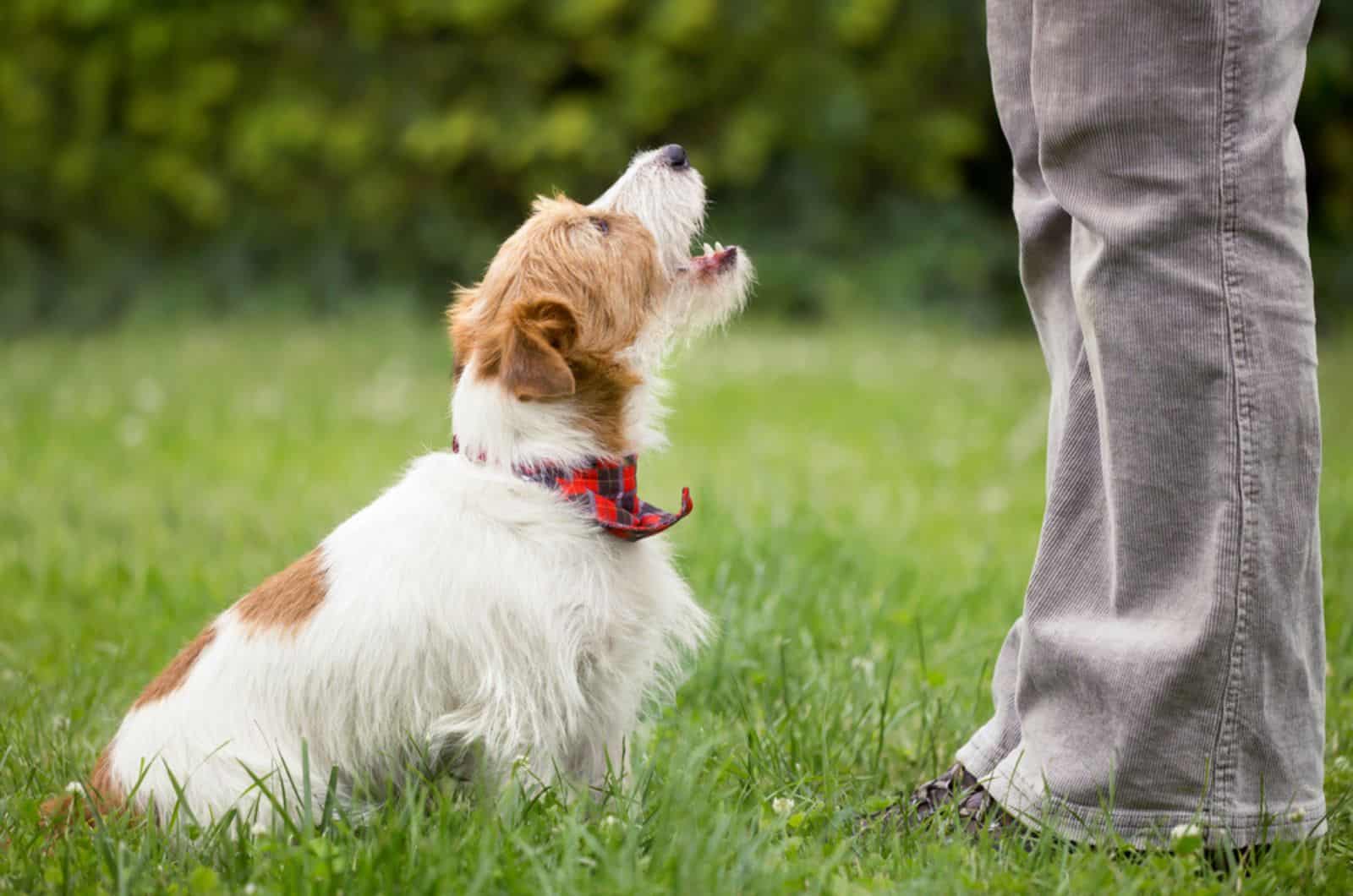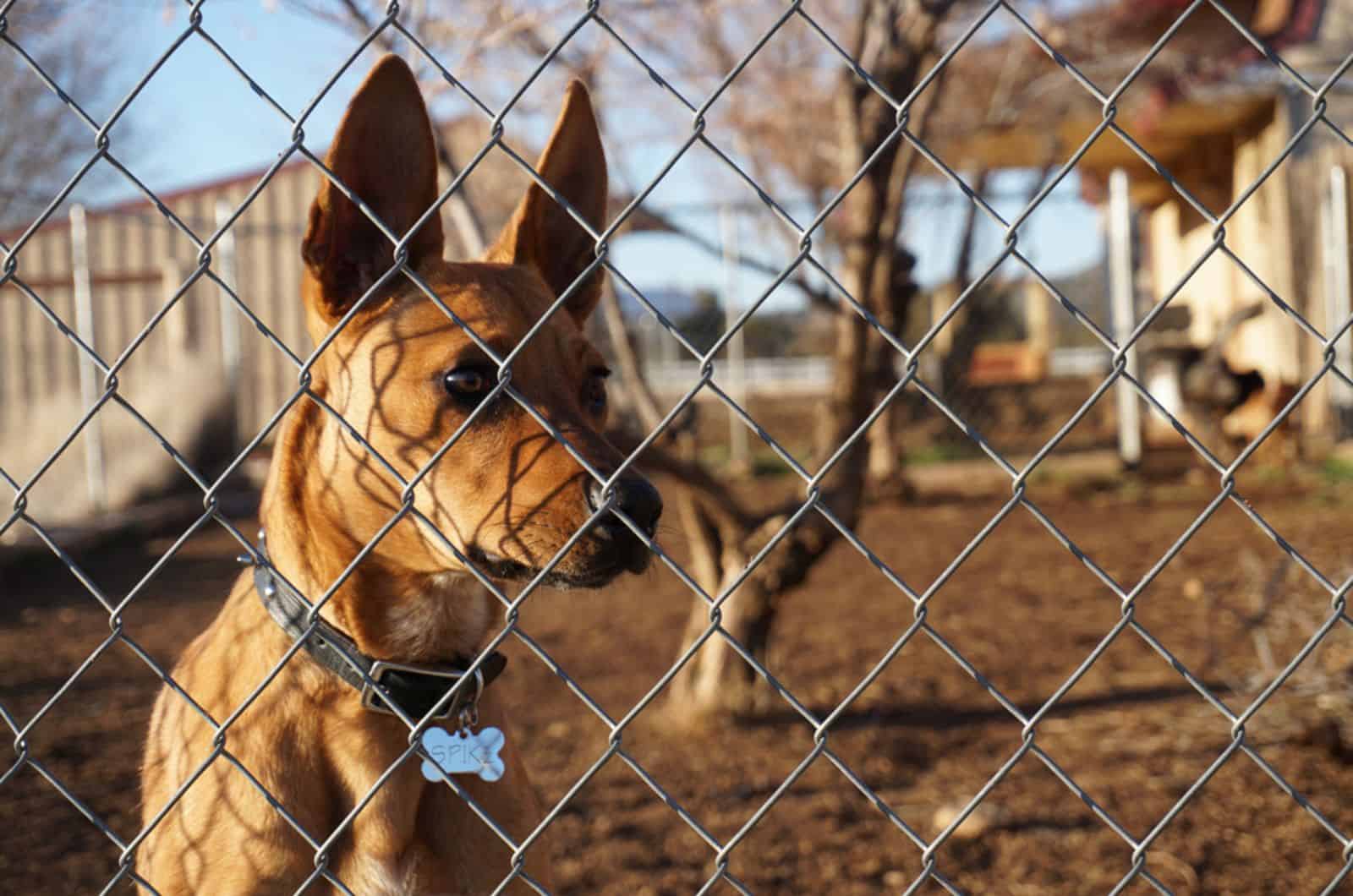Tail wagging, wet kisses, and barking are things that characterize dogs. Cats meow, humans speak, and dogs bark. That’s the way things roll.
But what if your dog is not a typical dog? What if you go to your vet’s office and ask:
Why doesn’t my dog bark?
The lack of barking is sometimes linked to the dog’s personality. Not every dog barks the same way, or as much as the other dog. That’s simply a breed disposition.
However, the lack of barking can also be a sign of certain medical conditions, potential issues with the behavior, previous dog training, overuse of items like shock collars, etc.
Each individual dog has its own reason to bark or not to bark.
Today, we’ll go through the reasons behind the lack of barking together and learn something new.
Why Doesn’t My Dog Bark?

So, why is my dog not barking?
Picture the situation: you just brought your new puppy into its new home. Everything is new, unusual, and a bit intimidating to your pooch. He’s still learning where to go potty and where he’s allowed to sleep. Barking can be a sign for some pups that they’re not comfortable in that area.
Before your puppy turns into a laid back, low-maintenance pooch, you’ll need to give him time to adjust and open up.
Moving on…
What kind of breed did you get? Is it a big and loud one like the Doberman? Or is it a small pooch like the Maltese? These are opposite breeds in all possible terms. You can’t expect the same proneness to barking with each dog breed.
Before you end up worrying Why doesn’t my dog bark, you should see if you got a generally quiet breed or not.
Behavioral issues and medical conditions can also be a reason behind the lack of barking. However, they’re not the first thing we have in mind when Fido becomes silent all of a sudden. Your pooch should exhibit other symptoms before we all think there’s a medical condition behind the absence of barking.
How about we go through each reason in-depth, so you can better understand your dog?
But first, why do dogs even bark? Mystery solved!
Why Do Dogs Bark In The First Place?

Have you ever wondered why dogs bark in the first place?
We don’t normally question general behavior with dogs, but barking is something that may or may not be within normal limits.
Barking is considered normal dog behavior. Dogs bark and humans speak. Meaning that barking is a way for your dog to communicate with you. By barking, your dog is letting you know he wants something, or something is wrong.
Your dog will bark to get your attention or demand dog food to be served. Sometimes, your dog will bark along with you talking loudly because he wants to feel included. Showing emotions with barking is absolutely normal.
Also, barking at the sight of a threat or something unfamiliar is considered normal. A lot of dogs are great watchdogs and will let you know if something is wrong.
What isn’t normal is excessive barking. It’s often a sign of a deeper problem like separation anxiety, or stress.
I know what you might think: It’s not okay when they bark, it’s not okay when they don’t bark.
So, what is, okay?
Dog barking within normal limits is okay. Excessive barking or no barking at all is not.
We’re about to see when the absence of barking should worry you, and when not.
What Medical Issues Are The Reasons Why My Dog Doesn’t Bark?

Unfortunately, medical problems can be a reason why your dog doesn’t bark.
You can suspect medical issues if your barking dog stops communicating with you all of a sudden.The immediate absence of barking could be a sign your dog has developed a health issue and needs to be treated.
So, what kind of health problems can affect the lack of barking?
Let’s find out!
Laryngeal Paralysis
Laryngeal Paralysis is a condition when your dog’s larynx or voice box changes or carries an impairment. Dogs can either be born with an impaired larynx or develop a problem growing up.
Laryngeal Paralysis affects the structure of the voice box significantly, even paralyzes the muscles and doesn’t allow your dog to speak. The cartilage that supports laryngeal muscles also collapses.
The only treatment that could relieve your dog of this condition is surgery.
Tumors
Dog tumors are quite common and can strike pretty much any area of the body, including the dog’s throat.
Severe conditions when dogs stop barking include larynx or trachea tumors. One such condition features Chondrosarcoma, a malignant tumor which grows inside your dog’s throat and stops them from barking and breathing normally.
Tumors can be operable, but it depends on how far it has come. It’s individual to each dog, meaning you can encounter inoperable conditions.
Infections
Infections and inflammations are pretty normal for everyone, including dogs.
The throat is a sensitive area prone to catching any bug, virus, or infection. When your dog’s throat gets inflamed, it creates a terrific surrounding for developing a bacterial infection. This will affect your dog’s ability to eat and bark. Only drinking water won’t cause your dog issues.
Luckily, infections aren’t usually severe, and your dog will need a round of antibiotics to feel better.
Non-Medical Reasons Why Your Dog Doesn’t Bark

The lack of barking isn’t necessarily because some sort of a health issue has struck your dog. You shouldn’t immediately feel worried because your dog might be quiet for some other reason. Sometimes those reasons are not that big of a deal, like getting used to new surroundings.
However, sometimes the reason could mean your dog is experiencing some behavioral problem.
He’s Too Afraid To Bark
Some dogs will be too afraid to bark because they expect something bad to happen if they let out a sound. This usually occurs with rescue dogs. If your dog was through a lot, there’s a huge chance the previous owner, or even the breeder, has punished your pooch for barking.
That has imprinted onto your dog and doesn’t allow him to bark anymore.
Also, dogs that are still getting used to their new surroundings are less likely to bark. As time goes by and your dog gets used to the new area, he’ll definitely begin to bark occasionally. If he doesn’t, it’s time to consider re-training him into barking.
Sure, it’s great to have a silent dog, but let’s not suppress their natural needs. Personally, I find training them into silence quite radical and something I wouldn’t do to my dogs. Let them be… dogs!
He’s Trained Not To Bark
Sadly, pre-owned dogs are often trained not to bark. Silence training isn’t for every dog or dog owner. Some people actually prefer hearing their dogs communicate.
Of course, there are situations when this sort of training is an absolute must. When your dog is barking for no reason all the time, growling at nothing, or barking or crying in the middle of the night, training is crucial.
Other than that, training a pawfectly normal dog into silence is simply ridiculous and unnecessary.
His Personality Is Quiet
Some dog breeds are just quiet and that’s the way they are. You can’t really change their personalities no matter how hard you try.
If your dog is one of the silent ones, don’t bust your head trying to find a way to make him bark. Leave things as natural as they can be.
Should I Be Concerned If My Dog Doesn’t Bark At All?

You should be concerned only if it’s a matter of health issues.
Behavioral problems, getting adapted to the new surroundings, training issues, and previous trauma aren’t cases for your veterinarian. He’s a medical doctor for dogs, not a therapist.
Still, you should alarm your vet if you notice sudden changes in your dog’s behavior and lack of barking, especially if your dog was a big barker before.
Normally, those changes are accompanied by appetite loss, lack of energy, change in mood, etc.
Your vet will run some tests to see what’s bothering your dog and prescribe a treatment that’s suitable for his condition.
You should only bring your dog to the vet when you’re sure you don’t have a silent breed or that your dog doesn’t have a behavioral problem behind the lack of barking.
All in all, don’t make a big fuss when there shouldn’t be one. Don’t make problems where there are any. If your dog is healthy and feeling fine behavioral-wise, don’t push your luck. Trying so hard to make a silent dog bark might bring you more of a headache than before.
Which Dog Breeds Are Not Big Barkers?

Some dog breeds aren’t big barkers at all. That’s in their DNA.
One of the biggest reasons why some dog breeds are known as barkers is their origin. Of course, a German Shepherd is a big barker, he was bred to be a guardian of the cattle and the humans. On the other hand, a Maltese was bred to be a companion. This role didn’t demand strong vocal capabilities.
You get the point, don’t you?
But do all companion dogs stay quiet, or are some of them loud after all?
Why don’t we check out which dog breeds are not big barkers at all. Maybe you’ll be relieved knowing your little pooch isn’t a natural barker.
Shiba Inu
Shiba Inu is a mysterious dog breed from Japan. Although we know quite a lot about this dog breed, they still seem like they’re hiding something. Maybe that’s why they’re so quiet!
Shibas have feline-like behavior. They’re calm, take everything with a grain of salt, and don’t trust people easily. Of course, an average Shiba will bark like crazy if he sees a threat coming his way because they can be aggressive.
But usually, they will stay calm, and silently judge their surroundings, just like their kitty buddies.
Basenji
Basenji dogs are pretty cool, aren’t they? They’re compact-sized, have a lovely appearance, and have an even lovelier temperament.
Of course, they’re not big barkers either. Even Basenji crossbreed dogs aren’t considered as big barkers!
What’s so unusual about this dog breed is that they don’t have a typical dog bark. Basenjis are known for their funny yodel sound. Let’s just say it’s their way of barking, somewhere between a bark and a howl.
Saluki
Salukis are one of the shyest dog breeds in the world. Hearing them bark is pretty… uncommon!
A typical Saluki will trust only his family members and won’t feel comfortable around strange people. However, you won’t hear a Saluki barking its lungs out if someone approaches him with a threat. Not only are they shy, but they’re pretty intimidated too.
Bulldog
Bulldogs are known for many things, but being a big barker isn’t one.
No matter which Bully dog breed you have, if you own a typical English Bulldog, or you fancy the French version, neither one of these pooches will bark that easily.
And, when they bark, Bulldogs will show their deep baritone voice with a short woof.
Whippet
The similarities between Whippets and Greyhounds seem to never end. In this case, Whippets are pretty similar to Greyhounds, because they don’t bark.
Well, they do, during playtime, but that really varies from one Whippet to another.
Chinese Shar-Pei
Shar-Pei dogs are pretty similar to Shibas, but not in terms of their appearance. These big, fluffy Chinese dogs are quite mysterious and there’s always something new we learn about them.
Today, you’ll learn that Shar-Pei pups don’t bark at all. They don’t feel the need to bark and talk to their owners that way.
But leave out one day of exercise and you’ll hear what your Shar-Pei is capable of.
Borzoi
Russian dog breeds aren’t normally silent, but the Borzoi is.
These dogs are tall, gracious, and always seem frightened of something. The elegance Borzois have, prevents them from barking their lungs out.
I tend to think of Borzois as the last Russian royalty. That’s how elegant they are.
Cavalier King Charles Spaniel
The Cavalier King Charles Spaniel is one of those dog breeds that don’t like being left alone. They enjoy human company more than anything and feel pretty down when they’re alone.
The only situation in which you could hear a Cavalier King Charles barking would be if he’s left alone for too long and experiencing separation anxiety.
Other than that, Cavaliers are super docile and don’t normally bark to communicate.
Italian Greyhound
Another generally quiet dog breed is a member of the Italian dog group, the Italian Greyhound.
Greyhounds usually look so timid and fragile. You can’t imagine a big bark from them, can you? That’s right. While the average Italian Greyhound will bark if he senses trouble, that bark would not be as powerful and loud as with German Shepherds, for example.
Which Dog Breeds Are Loud?

Barking isn’t something you usually seek from a dog. When people decide to adopt a new pet, they usually pick quiet breeds, especially if they’re living in an apartment. Not every dog is cut out to fit city living. You can enjoy your life in a big city with your toy Poodle, but a Rottweiler will hardly fit into it.
That’s not because of their size. That’s because of their vocal capabilities. Let’s just say the neighbors wouldn’t enjoy how your Rottie barks in the morning to wake you up.
It’s good to know which breeds are super loud, just to avoid getting them if you’re leading a city life. The following pooches would do much better living in a house, where neighbors aren’t as close as in cities.
The American Kennel Club declares these breeds as the loudest ones:
German Shepherd
I’ve mentioned German Shepherds several times throughout the article. Yes, they’re big barkers!
German Shepherds have a rather mighty bark, and they can make you feel intimidated within milliseconds. But German Shepherds don’t only bark to scare away strangers. That’s how they communicate.
German Shepherds tend to bark quite a lot during playtime, simply because they’re enjoying it.
Siberian Husky
Siberian Husky is one of those breeds you can wonder: Why doesn’t my dog bark?
Huskies normally don’t bark a lot, but they do something else. Huskies howl. A LOT. They have a specific howl that makes them recognizable. The howling probably has a lot to do with their origin and deep connection with first canines or wolves.
Huskies don’t bark to communicate. They will speak! Ever heard of talking Huskies? Go Google them!
Golden Retriever
Did you know that the world record for the loudest barks isn’t held by a German Shepherd? A Golden Retriever named Charlie has been the loudest dog in the world for 10 years now!
Golden Retrievers aren’t aggressive or dangerous. Goldens are super kid friendly and only bark because they’re excited and want to talk to you.
Yorkshire Terriers
Who would know that something so tiny could have such a strong bark?
Yorkies are notorious for being so yappy. Seems like these pooches never shut up. Besides being yappy, Yorkies tend to bark to chase away strangers and potential threats. They will easily come at any bigger dog if they feel in danger. This has a lot to do with the Napoleon complex most Yorkies have.
Chihuahua
Besides Yorkies, Chihuahuas are another dog breed that’s super tiny, but super loud.
Chihuahuas can be pretty aggressive. That’s why you must put in extra effort to train them. That’s why they may growl and bark.
Chihuahuas are normally sweet to their favorite people but can be quite a pain for those they don’t know.
Can I Train My Dog To Bark?

Yes!
Besides training your dog into being quiet, you can also train it back into barking! Obedience training is more advantageous, but I’m sure you can manage it with some persistence and the right approach.
Every dog learns best under positive reinforcement. As you may or may not know, positive reinforcement enforces the use of treats and praises every time your dog does something well.
Start your bark training by handing out a treat to your dog, just so he can see you have them.
Then put them out of your dog’s reach and say the command speak. Of course, your dog is not a robot, and he won’t bark on command immediately. What he will do is growl, roll over, jump, lay down, sit, and anything else that comes to his mind, because he really wants that treat.
Sooner or later, your dog will give up and start barking to demand a treat. That’s when you can give another snack. Your dog will quickly catch up that barking is something alright and will bring him treats. not beating like before.
It’s hard to fix what the previous owner or breeder broke, but hard work gets you there.
To Sum Up…
So, have you gotten the answer to the question “Why doesn’t my dog bark?”
I hope you did because there aren’t really any other reasons besides personality, medical, or behavioral issues.
Some dogs are barkers, some are not. Some exhibit behavioral problems like separation anxiety in excessive barking, and some lose their voice.
Each dog is a story of its own. They must be addressed individually to find the core of the problem, and thus the cure.
What you should realize is that you can’t change a silent dog breed and make them barkers. Small and shy dogs aren’t usually big barkers, so don’t expect them to match bigger dogs.
Before you even get a puppy, decide if barking or the absence of it is something you can live with. Some dog owners find it unusual for dogs not to bark or communicate with them. So, if it would drive you crazy, pick a vocal breed instead of a sweet, silent one.
